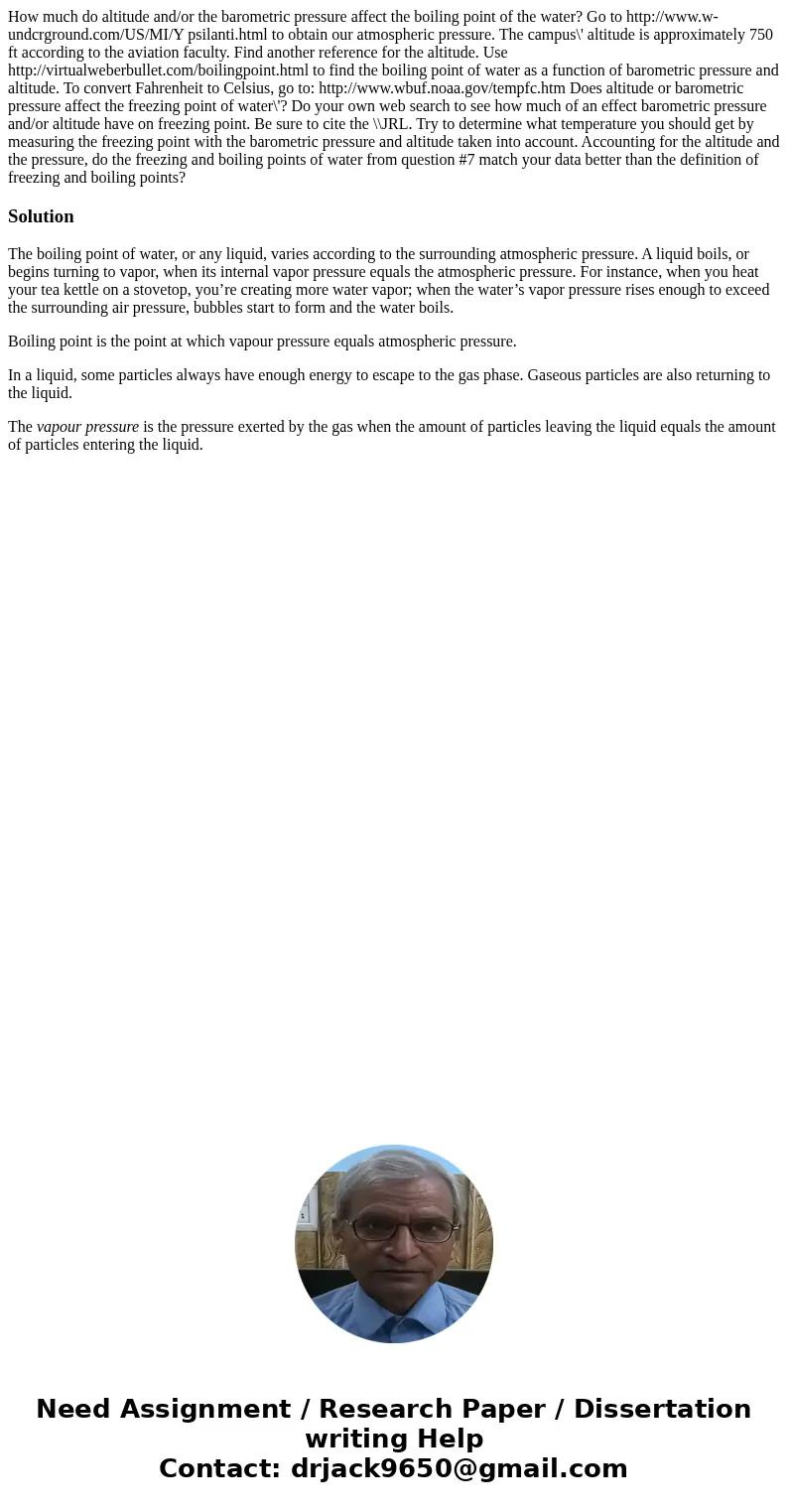How much do altitude and/or the barometric pressure affect the boiling point of the water? Go to http://www.w-undcrground.com/US/MI/Y psilanti.html to obtain our atmospheric pressure. The campus\' altitude is approximately 750 ft according to the aviation faculty. Find another reference for the altitude. Use http://virtualweberbullet.com/boilingpoint.html to find the boiling point of water as a function of barometric pressure and altitude. To convert Fahrenheit to Celsius, go to: http://www.wbuf.noaa.gov/tempfc.htm Does altitude or barometric pressure affect the freezing point of water\'? Do your own web search to see how much of an effect barometric pressure and/or altitude have on freezing point. Be sure to cite the \\JRL. Try to determine what temperature you should get by measuring the freezing point with the barometric pressure and altitude taken into account. Accounting for the altitude and the pressure, do the freezing and boiling points of water from question #7 match your data better than the definition of freezing and boiling points?
The boiling point of water, or any liquid, varies according to the surrounding atmospheric pressure. A liquid boils, or begins turning to vapor, when its internal vapor pressure equals the atmospheric pressure. For instance, when you heat your tea kettle on a stovetop, you’re creating more water vapor; when the water’s vapor pressure rises enough to exceed the surrounding air pressure, bubbles start to form and the water boils.
Boiling point is the point at which vapour pressure equals atmospheric pressure.
In a liquid, some particles always have enough energy to escape to the gas phase. Gaseous particles are also returning to the liquid.
The vapour pressure is the pressure exerted by the gas when the amount of particles leaving the liquid equals the amount of particles entering the liquid.

 Homework Sourse
Homework Sourse